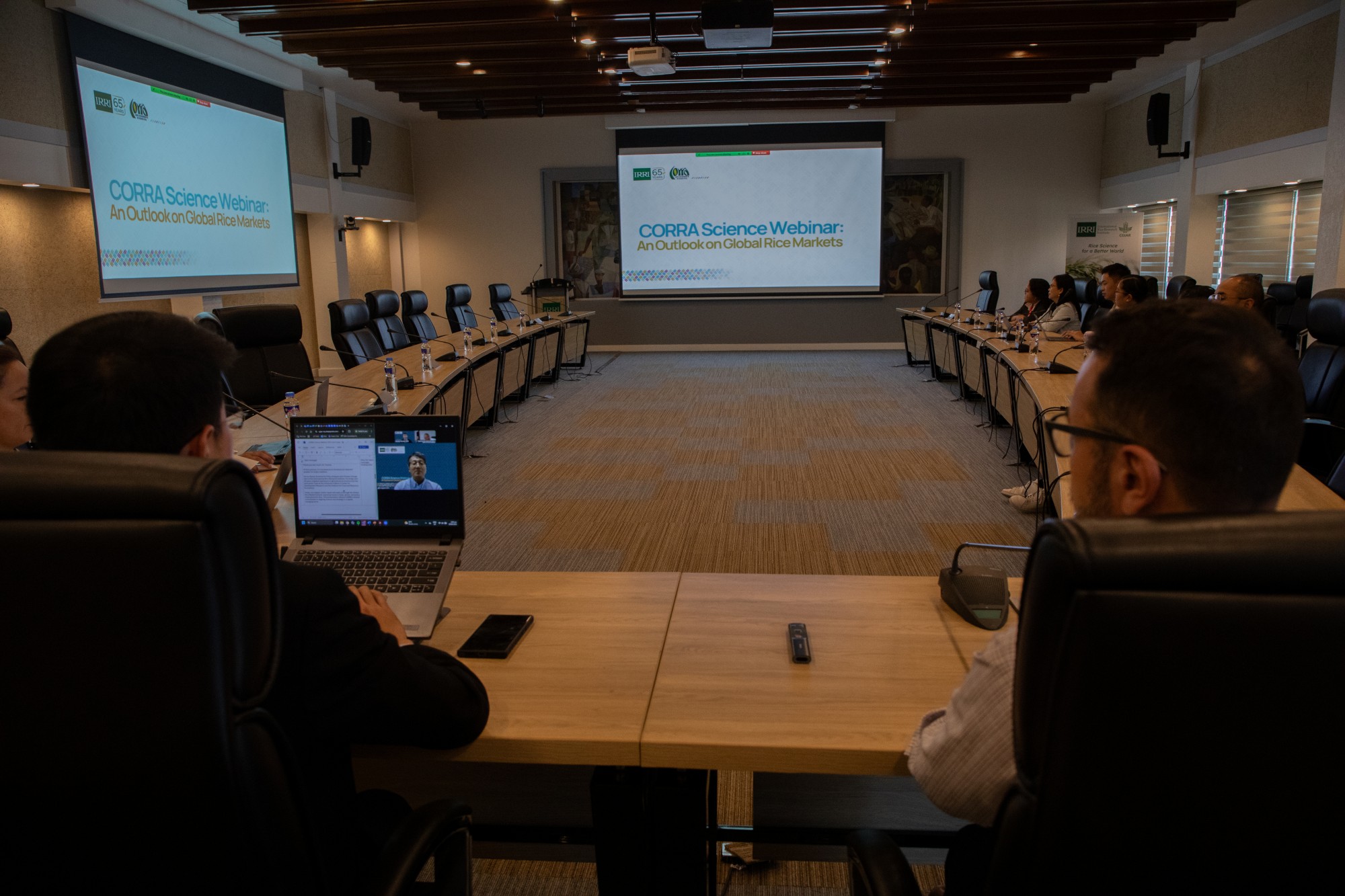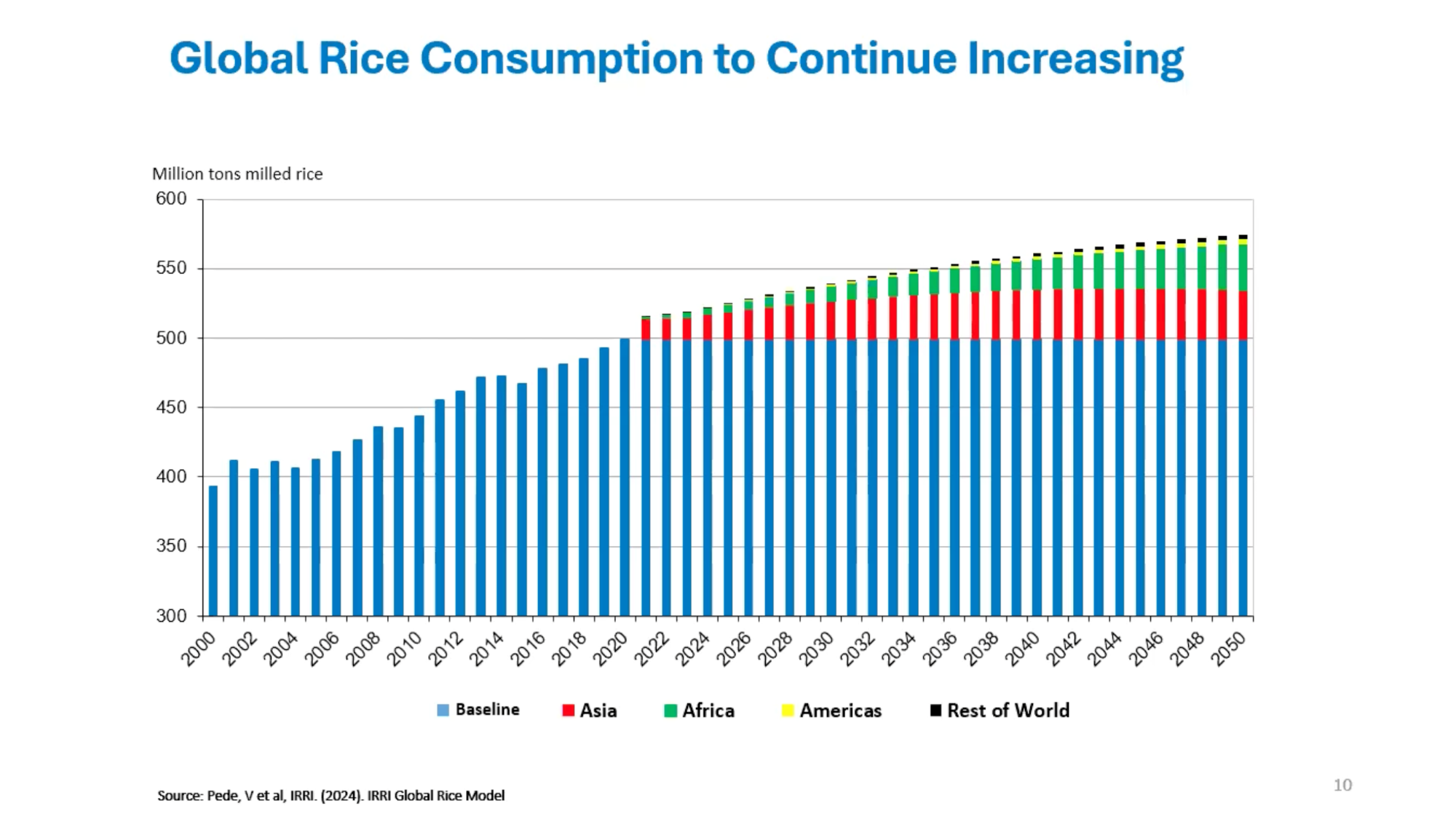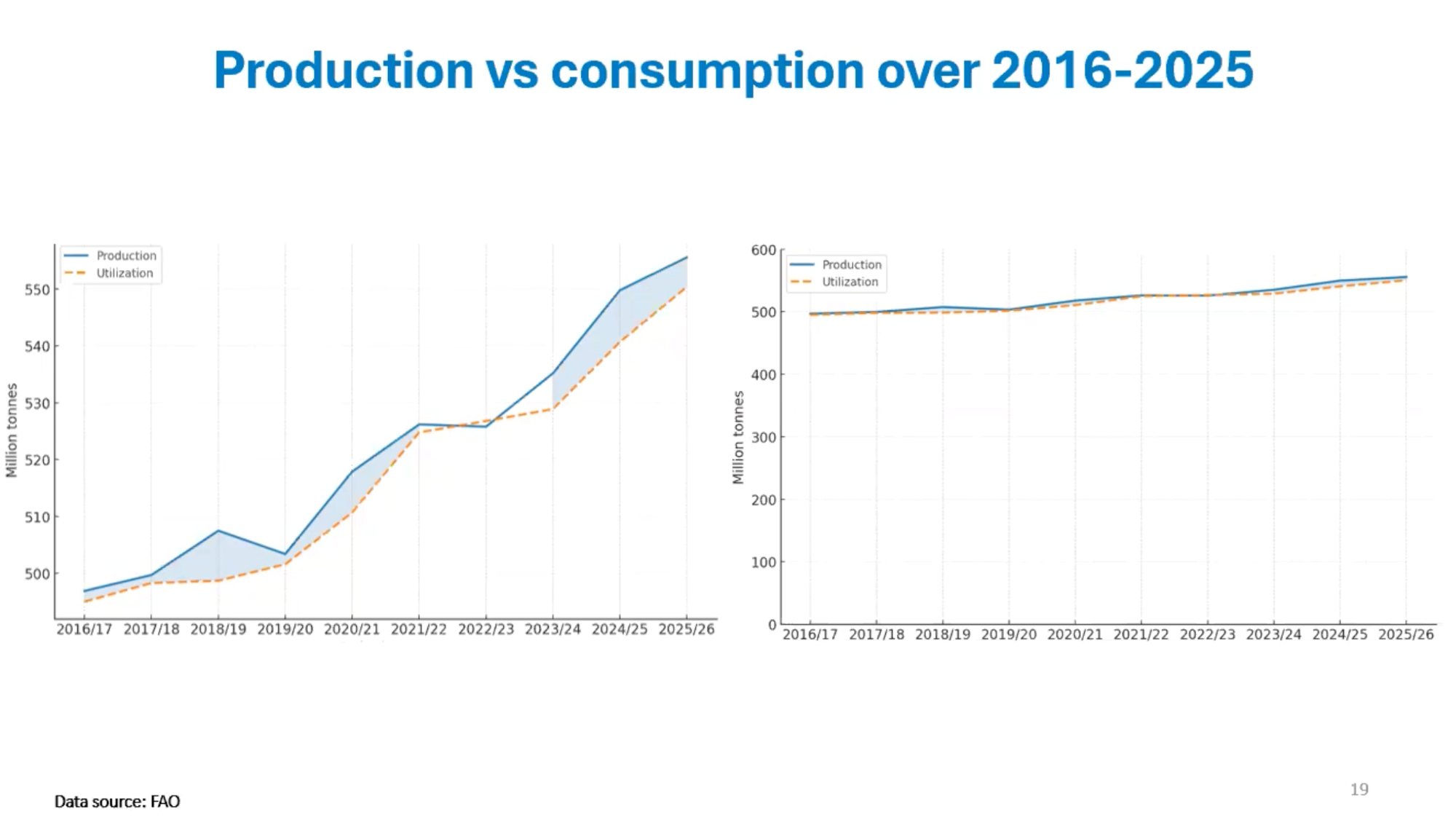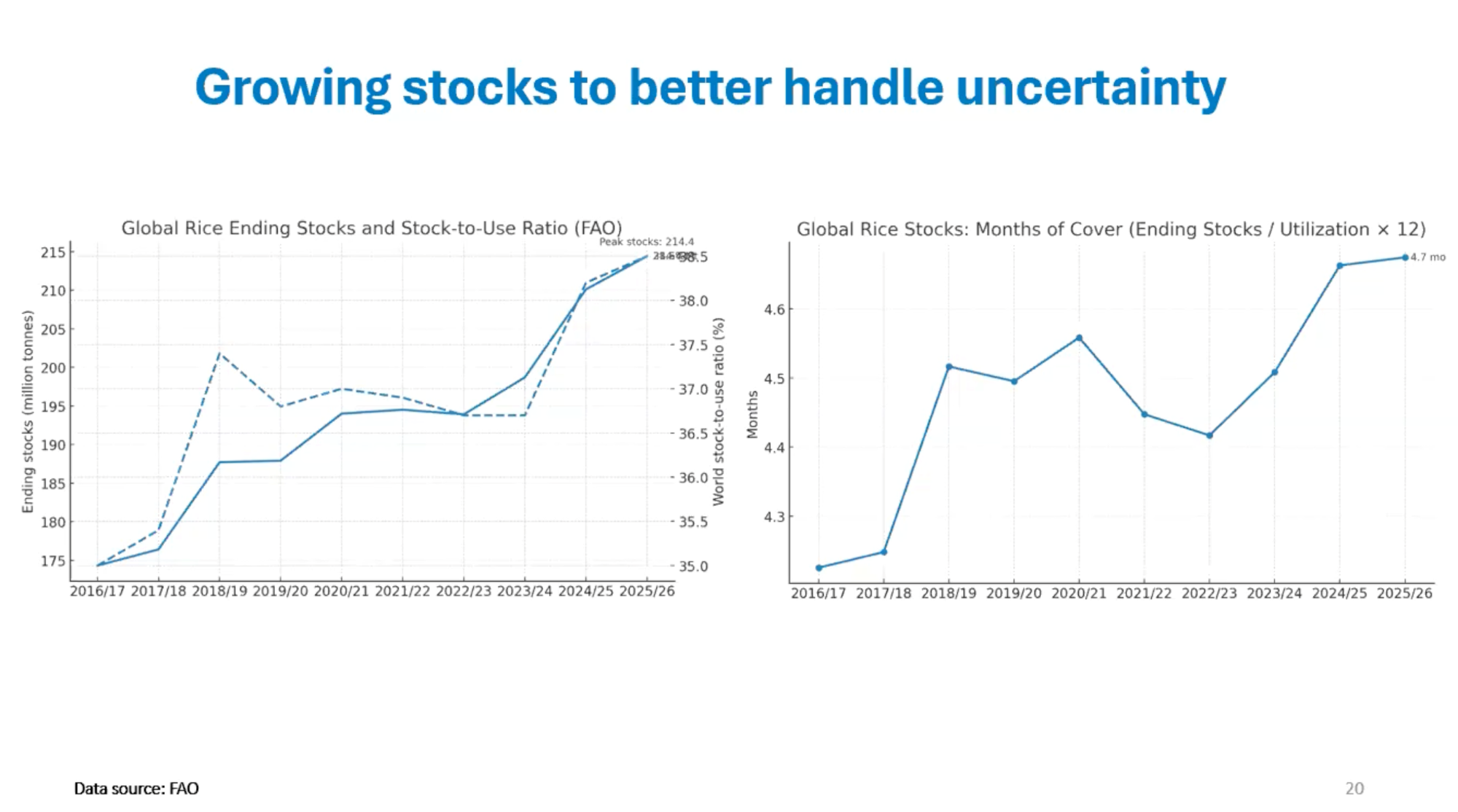IRRI, CORRA highlight urgent call for cooperation amid risks to global rice security

Rice may look like a humble grain, but it sits at the center of global food security, nourishing four billion people and sustaining the lives of 150 million smallholder farmers. With climate changes mounting, trade disruptions intensifying, and consumption patterns shifting, the future is anything but certain.
This was the message during this year’s CORRA’s science webinar, organized with the International Rice Research Institute (IRRI) on 19 August 2025.
A fragile system under strain
Opening the program, IRRI’s Representative for Asia, Dr. Jongsoo Shin set the tone with a list of challenges: higher production costs, the effects of climate change, trade tensions, and evolving consumer preferences. These are the problems IRRI seeks to solve. The Institute’s work is focused on creating a resilient global rice sector through innovations that reduce cost for farmers, adapt to climate change, and meet the demands of a complex market.
In a video message, IRRI Director General Dr. Yvonne Pinto called for long-term partnerships, noting the timeliness of this year's discussion. “As we navigate market shocks, climate uncertainty, and shifting trade dynamics, research and cooperation are not options - they are urgent,” she said.

Rice demand on the rise
Dr. Alisher Mirzabaev, IRRI senior scientist for policy analysis and climate change painted both an optimistic and cautionary picture during his presentation.
Rice continues to anchor economies with an annual turnover of USD 332 billion. Africa, he notes, has seen an increase in rice consumption, a trend projected to continue across Asia and Africa into the decades to come, not only due to population growth but also due to changing diets, rising incomes, and urbanization.

High volatility of international rice price movements, with sharp peaks and dips, will continue affecting the lives of millions of farmers and billions of consumers.
To strengthen resilience against these risks, Dr. Mirzabaev urged countries to accelerate investments into their national and research innovation systems. That involves investing in technologies that enhance yields despite climate shocks, improving buffer stocks, and flexibly refining trade and insurance policies to help absorb future shocks.
International cooperation, he added, is just as critical, such as regional rice stocks.

A continuing platform for solutions
CORRA members reaffirmed their commitment to long-term collaboration. With its role as a convening platform, CORRA continues to provide space for aligning research, policies, and shared solutions to safeguard the future of rice.
The Council will convene for their annual meeting in Uzbekistan in October 2025, hosted by the Rice Research Institute - National Center for Knowledge and Innovation in Agriculture (RRI-NCKIA).
CORRA, or the Council for Partnerships on Rice Research in Asia, is a collaborative forum established by the International Rice Research Institute (IRRI) and national agricultural research and extension systems (NARES) of 17 rice-growing countries in Asia. Its primary goal is to strengthen partnerships and facilitate collaboration among these entities to advance rice research and development in the region.